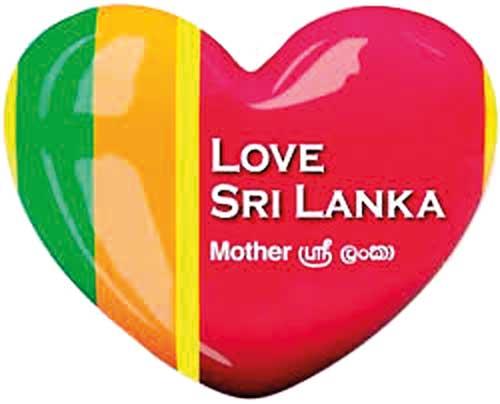Reply To:
Name - Reply Comment
Last Updated : 2024-04-25 06:31:00
A big part of apekama, or our-ness, comes from being proud of who we are. Contrary to those who claim that  ethnicity is meaningless, identities do exist, and they have a say in how nations grow and how they recede. The ruthlessness with which superpowers continue to push down their agendas on poorer countries, including us, and the complicity of multilateral agencies and institutions that watch from the sidelines as these superpowers get away with it, has a lot to do with an inbred belief in the superiority of one (white) culture and civilisation over all others. Continuing to deny the relevance of identity in how politics work and move would hence be, in the long run, not merely meaningless, but also counterproductive. Nations pursue their interests, and they invariably impose the interests of a ruling class (not always an ethnic group) on other communities. Cultural pride thus has a role to play at a time like this, in bringing us all together, in reinforcing unity rather than difference. That, as Regi Siriwardena once noted, is the source of our strength.
ethnicity is meaningless, identities do exist, and they have a say in how nations grow and how they recede. The ruthlessness with which superpowers continue to push down their agendas on poorer countries, including us, and the complicity of multilateral agencies and institutions that watch from the sidelines as these superpowers get away with it, has a lot to do with an inbred belief in the superiority of one (white) culture and civilisation over all others. Continuing to deny the relevance of identity in how politics work and move would hence be, in the long run, not merely meaningless, but also counterproductive. Nations pursue their interests, and they invariably impose the interests of a ruling class (not always an ethnic group) on other communities. Cultural pride thus has a role to play at a time like this, in bringing us all together, in reinforcing unity rather than difference. That, as Regi Siriwardena once noted, is the source of our strength.
But cultural pride can also, in the long term, deflect attention from what we should achieve in order to warrant pride. This is largely because it has become, in Sri Lanka, a commodity to talk about, buy, sell, and speculate on.  The idea of “national” has, in that sense, been auctioned, sold to the highest bidder, and promoted in such a way as to dilute its real meaning. We have a great many things to be proud about – don’t get me wrong, I am not saying that we don’t – but that naturally begs the all too relevant question, with what do we measure pride? Pride of the cosmetic sort, the “I Love Sri Lanka” T-shirt wearing sort, that’s easy to sport and show to the rest of the world? Or pride of the tangible sort, pride at having been able to come up with something, a product or an innovation, of our own? My bets are all for the latter, not the former.
The idea of “national” has, in that sense, been auctioned, sold to the highest bidder, and promoted in such a way as to dilute its real meaning. We have a great many things to be proud about – don’t get me wrong, I am not saying that we don’t – but that naturally begs the all too relevant question, with what do we measure pride? Pride of the cosmetic sort, the “I Love Sri Lanka” T-shirt wearing sort, that’s easy to sport and show to the rest of the world? Or pride of the tangible sort, pride at having been able to come up with something, a product or an innovation, of our own? My bets are all for the latter, not the former.
I believe nationalists, particularly the idealistic romantic ones, easily blur the distinction between the optics and the reality. They fail to realise that culture is inextricably linked to economics and politics, and that nationalism in the developed world has, throughout history, been shaped, nurtured, and fostered by sustained growth and development. Much of that growth materialised through efforts made by those countries to be manufacturers, or net producers, rather than mere net consumers of commodities and goods. It all stemmed, to put it in simple terms, from production: local, industrial, and technology driven. Anyone who chucks this out and props up visions of a nostalgic, glorious past in which we are supposed to have reigned supreme, and anyone who says that industry doesn’t and won’t matter, has got his or her notions of national (and cultural) pride mixed up. Their fundamental mistake is in ignoring the material basis for nationalism. Their emphasis instead is on the ethnic and religious, the spiritual, and the supposedly mystical aspects of nationalism (that interestingly enough happen to be those that can be marketed, bought, sold, and commodified).
“Made in Sri Lanka” has come to mean, at least for a great many of us, a product physically made in the country"
If this is the sort of pride we celebrate, it goes without saying that we celebrate not only the wrong sort of culture, but also, and more significantly, the wrong symbols and the wrong representatives of what we consider as culture. I don’t include just politicians, crooks, and drug dealers here. The truth is that, as far as the link between nationalism and the material basis for nationalism is concerned, we celebrate the wrong political representatives and the wrong civil representatives; among the latter, academics, activists, artists, and businessmen.
Why do I include businessmen (or entrepreneurs) there? Simply because we’ve invested them with an aura of national and cultural pride which, for me, has never been fully warranted by their actions. Merely by virtue of the fact that they belong to a certain ethnic identity (Sinhala Buddhist), we hail them as sons of the soil who have kept up the honour of their community. It goes without saying that Gotabaya Rajapaksa, in the run up to last year’s election, courted the support of a nationalist middle class which saw in big corporate leaders rallying around him national minded businessmen who had, contrary to the behaviour of most businessmen, not let go of their roots.
The problem for me is that these business leaders haven’t gone far enough to stick to the “national minded” label. In large part, the media is to blame, though I don’t blame the media only. Through an elaborate combination of CSR and PR strategies, “national” entrepreneurs have managed to prop up their business activities as national-minded: they employ local workers, they export local products, and they earn profits which are invested in what are obliquely called local development schemes. To boost their Buddhist credentials, many of them engage in religious activities by sponsoring massive dhanas and banas as well as television programs. It’s untypical of them to argue, as one chairman of a company did, that Buddhism is for wealth generation, and only those who become rich understand the concept of suffering and “the way out”, but such claims are made with as much persuasion and alacrity as claims that their business practices are rooted in religious precepts and prohibitions. My issue here is not ethical, i.e. not whether their moral claims are borne out their business practices, but economic, i.e. whether their national minded-ness is borne out by those practices. Here we see a big gap between the rhetoric and the reality.
"This is largely because it has become, in Sri Lanka, a commodity to talk about, buy, sell, and speculate on"
“Made in Sri Lanka” has come to mean, at least for a great many of us, a product physically made in the country, authenticated by cultural pride. But what is physically made in the country? Well, some would point at garments. But garments are not really produced in the country; as S. B. D. de Silva has correctly pointed out, we don’t even manufacture the pin which goes into the sewing of dresses. To take another example, confectioneries which come with the “Made in Sri Lanka” label happen to be laced with palm oil and imported preservatives; and to take another, “Made in Sri Lanka” cars are to be assembled with IMPORTED engines and gearboxes. There is a website, eesrilanka.wordpress.com(check it out!), which puts this in perspective: it’s not what we produce, it’s how we produce. In that sense, can we consider “Made in Sri Lanka” products manufactured with imported capital goods as, well, “Made in Sri Lanka”? In cosmetic terms, perhaps. In reality, no.
There you have it: the contradictions of nationalism, industrialisation, and local businesses, of which the latter have de-emphasised the meaning of production. If local entrepreneurship and innovation privilege only the cosmetics of nationalism and cultural pride, the fault is largely with those who, in a quest to reclaim history, a long lost supremacy which the ethnic majority is supposed to have had in the past, inadvertently make a distinction between nationalism and the material basis for it. I have mentioned this before, and I will mention it again: not until we revisit the meaning of such words as national, culture, pride, and progress, not until we re-evaluate those we put on a pedestal and claim to be national or cultural minded, not until we link culture to local production and industry, will we be able to reclaim that past and continue to the future. Until then we’ll just be indulging in nostalgia, propping up national heroes in the form of politicians, criminals, and businessmen while ignoring the fact that the overwhelming majority from these groups have done precious little to further the cause of local production, industry, and progress. The solution is simply, really.

Add comment
Comments will be edited (grammar, spelling and slang) and authorized at the discretion of Daily Mirror online. The website also has the right not to publish selected comments.
Reply To:
Name - Reply Comment
US authorities are currently reviewing the manifest of every cargo aboard MV
On March 26, a couple arriving from Thailand was arrested with 88 live animal
According to villagers from Naula-Moragolla out of 105 families 80 can afford
Is the situation in Sri Lanka so grim that locals harbour hope that they coul